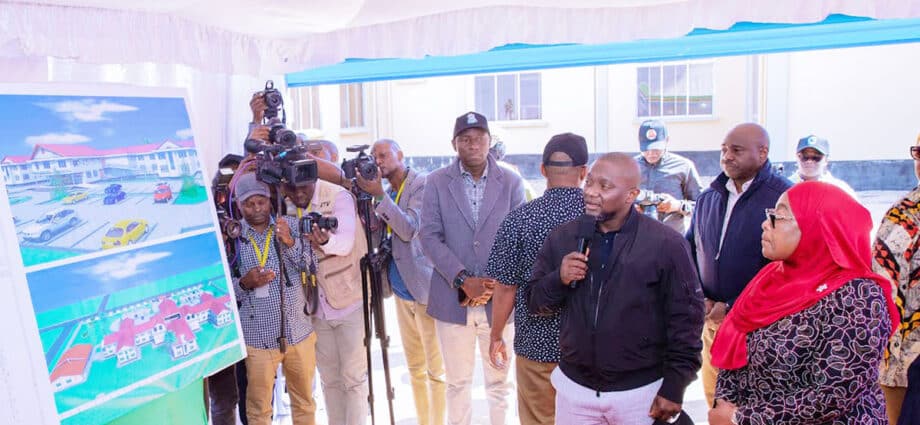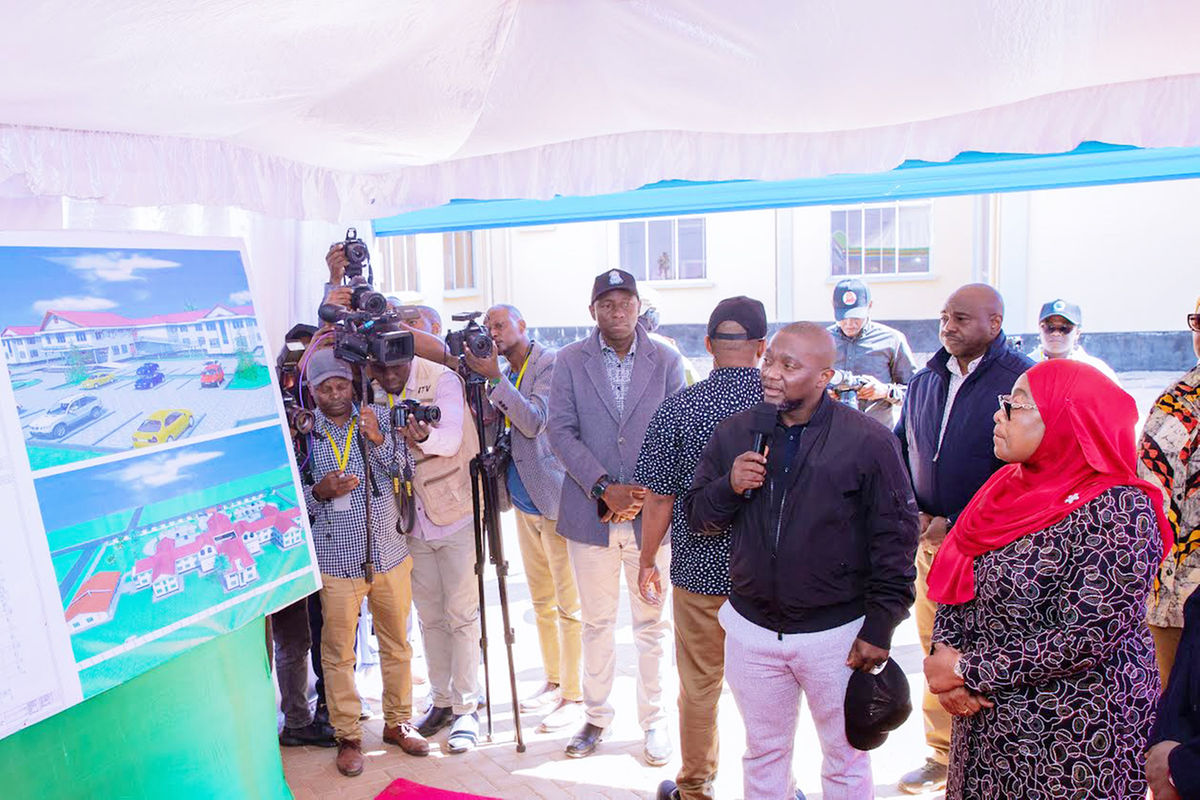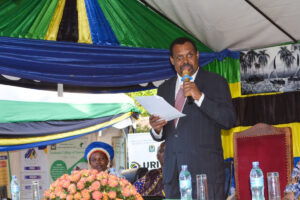Dar es Salaam. President Samia Suluhu Hassan said yesterday that the lack of sufficient road connectivity among African countries remains one of the obstacles to trade prosperity and economic growth on the continent.
President Hassan said that, unlike the other countries, Tanzania has made significant strides in road connectivity, both domestically and with those linking the country with its neighbours.
The Head of State was speaking in Matai Town, the administrative seat of Kalambo District, Rukwa Region, during the launch of the Sh133.2 billion road project stretching from Sumbawanga-Matai-Kasanga Port.
The President, who commenced her tour of the region earlier Tuesday, July 16, 2024, inaugurated the Sh4.5 billion Kalambo District administration block that would enable citizens to receive different social services under one roof.
Addressing the public during a live broadcast event, President Hassan said poor road connectivity forces most African countries to opt for product shipment to Europe and the rest of the world instead of trading with neighbouring countries.
“Since increased road connectivity boosts trade growth and supports economic development, you (citizens) are obliged to safeguard the road infrastructure by avoiding everything that could damage the roads,” she said, urging district authorities to increase supervision.
She said the government incurred huge costs in the construction of one kilometre of tarmac road, noting that the amount was enough to provide two fully furnished healthcare centres.
She warned transporters to avoid speeding, noting that, apart from claiming the lives of innocent citizens, road carnage increases budgetary demands in the health sector. She said previously transporters spent 24 hours travelling the 107.14 kilometres to the Kasanga Port, saying that the road would reduce the travel time to only two hours.
“Since the Kasanga Port connects Tanzania with Burundi and the Democratic Republic of the Congo (DRC), the movement of cargo, especially agricultural produce, will be significantly enhanced, therefore improving trade volume between Tanzania and its neighbours,” she said.
“While the government is working to provide a ship for the provision of transport and transportation services on Lake Tanganyika, you (citizens) and agro-processors are challenged to increase crop production to benefit from the investments made for the efficient recovery of invested funds,” added President Hassan.
Furthermore, President Hassan said a total of Sh1.6 billion has been disbursed to the region for the construction of a modern district hospital. She said the initiatives to bring health services closer to citizens have significantly reduced the under-five child-mother mortality ratio.
According to her, another Sh1.8 billion was issued to the region in the last three years for the execution of 60 water projects in 106 villages, out of which 43 ventures have been completed.
The completion of these water projects, the president said, will significantly increase the access to clean and safe water in the villages to 72 percent, about 13 percent below the 85 percent directed by the CCM election manifesto.
“Still, we have time for the implementation of other water projects before 2025, when the realisation of CCM directives is forecast,” she said, adding that the drilling of wells in the villages lacking nearby water sources was underway.
The chief executive officer of the Tanzania National Roads Agency (Tanroads), Eng Mohamed Besta, said the architecture and construction of the 107.14 kilometres tarmac roads project were jointly executed by the China Railway Seventh Group and the New Century Company Limited of China.
“The project was completed in April 2024, costing Sh150.5 billion. The costs involve construction, consulting, and compensation,” he said.
Read: Surge in service sector investments to bolster intra-African services sector
Works Minister Innocent Bashungwa said the government was also constructing the Matai-Kasesya (50 km) Road to further improve transport and transportation with neighbouring countries, as well as decongesting the Tunduma border.
Responding to the request from Kalambo Constituency lawmaker Josephat Kandege, who asked the Sh1.5 billion bridge constructed in the district to be named after her name, President Hassan said she ruled out that it should be named after Mama Maria Nyerere in honour of her contribution to the country’s liberation struggles and the nation’s development.















